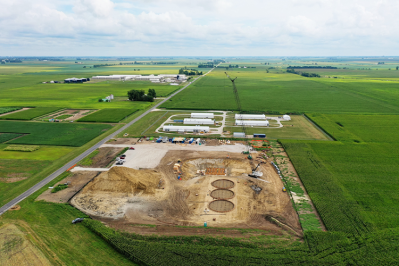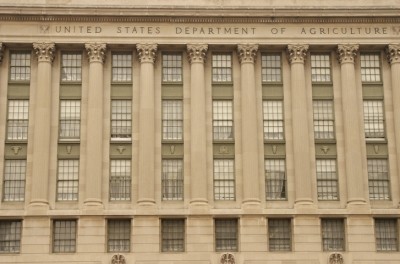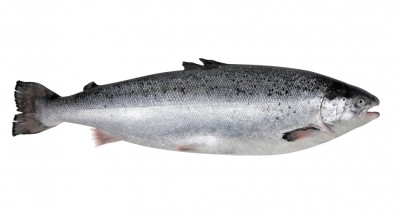USDA sinks $90m into support for ag systems research

The US Department of Agriculture’s (USDA) Agriculture and Food Research Initiative’s (AFRI) Sustainable Agriculture Systems (SAS) program is focused on supporting efforts to sustainably produce agricultural products, like aquaculture production or feed grains and food along with improving economic opportunities.
“This is NIFA’s attempt to address big problems in a big way,” said Robbin Shoemaker, national program leader in the division of agricultural systems. “We’re using a very multi-disciplinary attack to these problems and looking at these problems in a very systems level framework.”
The grant program uses creative or visionary projects from transdisciplinary teams to integrate research, education and extension activities and seeks to promote a convergence of the sciences to develop a new way to attack problems, he said in a webinar Wednesday.
“We want to solve present and future challenges in foods and agricultural production systems."
Working from a systems approach is somewhat like considering a system of equations “where the dependent variables are part of the explanatory variables and other equations and you need to solve for the system simultaneously,” he said. “It’s about looking at the entire facets and components of the system.”
A transdisciplinary approach is needed to address challenges and consider the entire value chain in a holistic manner, he said.
“We’re looking at a whole variety of agricultural systems and all the relative components to the upstream and downstream,” Shoemaker said. “One project can’t solve everything, but we ask that and expect that the application should have a well-defined system in their proposal.”
The program is accepting letters of intent through June 4 and applications have to be submitted by September 26, according to SAS information.
Grant program overview
The program is open to land-grant institutions along with public or private colleges and universities, according to program information. Projects can apply for $5m to $10m in funding and run for up to 5 years.
The purpose of the call for applications is to support efforts to “transform the US food and agricultural system to increase production in sustainable ways,” AFRI said.
The world population is expanding at a time when there are “diminishing land and water resources, climate variability, threats of disease and pest outbreaks, and challenges to human health and well-being.”
“The term ‘sustainable agriculture’ means a combined system of plant and animal production practices having a site-specific application that will, over the long-term, achieve the following goals: 1) satisfy human food and fiber needs; 2) enhance environmental quality and the natural resource base upon which the agricultural economy depends; 3) make the most efficient use of nonrenewable resources and on-farm resources and integrate, where appropriate, natural 7 biological cycles and controls; 4) sustain the economic viability of farm operations; and 5) enhance the quality of life for farmers and society as a whole. AFRI encourages projects addressing enhancement of sustainability of agricultural systems,” AFRI said.
Agricultural systems include the values chains from production to consumption for food and agricultural products coming from traditional farms and ranches and includes regulated production in a controlled environment, according to program information.
Projects also need to include education and training and have to address at least one of the established long-term goals, which include improving the profitability in agriculture and fostering economic development in rural America, AFIA said.
“A variety of technologies and management practices can lead to increases in the productivity and profitability of crop and livestock systems through sustainable agricultural intensification, smart strategies for climate adaptation,” the agency said.
Economic projects also could cover new ways to develop bio-based products to improve use and revenue or reduce cost including covering the full supply chain for feed, fiber or food production systems.
Past AFRI support of feed research
AFRI focuses on supporting research, extension efforts and education related to the US agriculture and food sector, according to program information. It provides grant funding for projects that address six priorities set in the Farm Bill.
These include plant health, production and products; animal health, production and products; food safety, health and nutrition; agricultural systems and technology; agricultural economics and rural communities and bioenergy, natural resources and the environment.
The AFRI SAS program collected applications for the first time in 2018 and final awards have yet to be made so examples of approved SAS projects are not available, according to program information.
A group of researchers spoke to us last year about using a modeling system to address dairy production from a systems perspective that had been submitted for USDA grant. The multi-university project is focused on developing a process-based modeling system that could connect all the elements in a dairy system to answer larger questions about production.
Additionally, AFRI efforts have previously support multiple feed research projects. A selection of these include supporting efforts to improve corn production, work to explore the development of new feed ingredient including the use of carinata as a feed ingredient.












